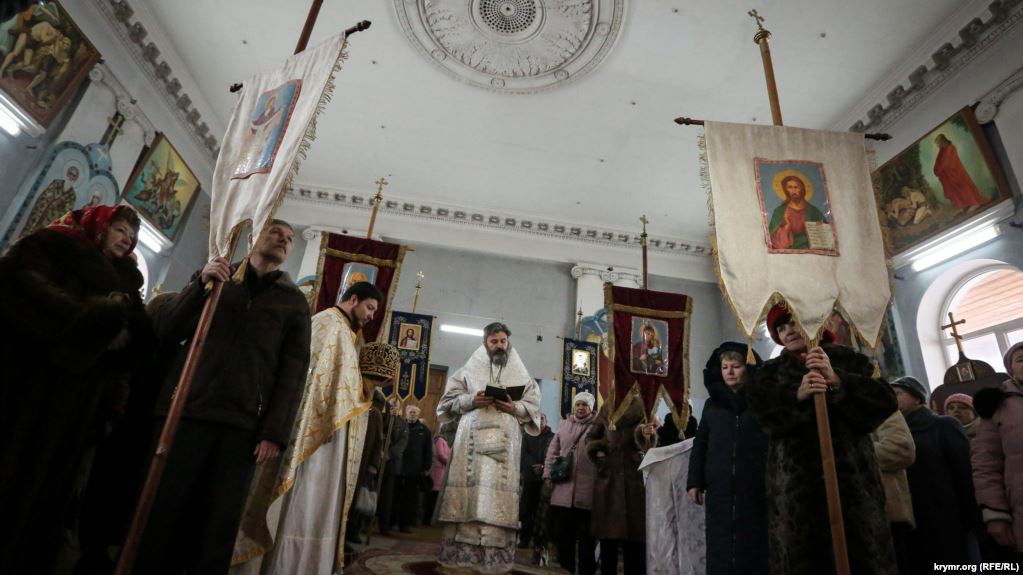Archbishop Klyment of Simferopol and Crimea says that once autocephaly is granted to Ukraine, the Russian occupation forces on the Ukrainian peninsula are likely to dramatically increase the pressure they have used against his bishopric and the few remaining priests who continue to serve believers there.
The churchman spoke at a roundtable in the Ukrainian Crisis Media Center this week (see uacrisis.org in Ukrainian; for a discussion of his remarks and the implications for the Ukrainian church in Crimea in the coming weeks and months, see Yevhen Solonyna’s article at krymr.com).
The situation of the Ukrainian Orthodox Church of the Kyiv Patriarchate (UOC KP) in occupied Crimea is complicated already, Klyment says.
On the one hand, the occupiers have stopped seeking to close his bishopric as such, although they continue to demand that it recognize that Crimea is Russian not Ukrainian. But on the other, they actively work against priests and congregations, harassing the former and trying to recruit them to the Russian security services and Russian church and restricting the ability of the latter to attend services by blocking access or threatening those who remain true to their faith.
Now that the Ukrainian church is on the brink of receiving autocephaly, however, the archbishop says, Russian lawyers and officials with whom he has spoken suggest that “pressure by the Russian authorities on the UOC KP in annexed Crimea is likely to intensify, with the actions of the local officials becoming ever “harsher.”
Just how dire the situation already is was underscored by another participant at the media center event. Oleksandr Sahan, a Ukrainian specialist on religious affairs, noted that, as a result of the pressure by the Russian occupation authorities, 38 of the 46 UOC KP churches were forced to close since 2014, 20 of 25 priests have either fled or ended their activity since the occupation, and services are held in only nine places.
Obviously, the situation, one in which UOC KP clergy can continue to function legally only if they acknowledge Russian sovereignty, can get worse. Indeed, Archbishop Klyment told the group that it would have already had it not been for the support his church has received from abroad.
The work of human rights groups and the declarations of various governments, both of which have denounced the Russian actions against his faithful, the churchman said, have kept Moscow from being even more repressive in the past by raising the costs to the Russian side from such actions.
Archbishop Klyment said he hoped that these same sources would continue to support his church when as seems likely the situation deteriorates further in the coming days.
Further Reading:
- Ukrainian Orthodox Church Kyiv Patriarchate in Crimea evicted from Cathedral
- Ukrainian Greek Catholic Primate fears his church may be liquidated in Crimea
- Russia methodically destroys and removes cultural treasures from occupied Crimea
- Moscow having failed to block Ukrainian autocephaly now attempting to exploit it
- Constantinople moves to grant autocephaly to Ukrainian Church, outraging Moscow
- Three signs Moscow Patriarch Kirill knows he’s lost on Ukrainian autocephaly
- Implicitly conceding Ukrainian autocephaly, Moscow makes plans to split Orthodoxy and dominate one part of it, analysts say
- 900-year-old relic found under church floor in Busk, Lviv Oblast
- Why Ukraine needs a free and recognized Orthodox Church
- A Ukrainian National Church — Ukraine’s hopes and Moscow’s traps


